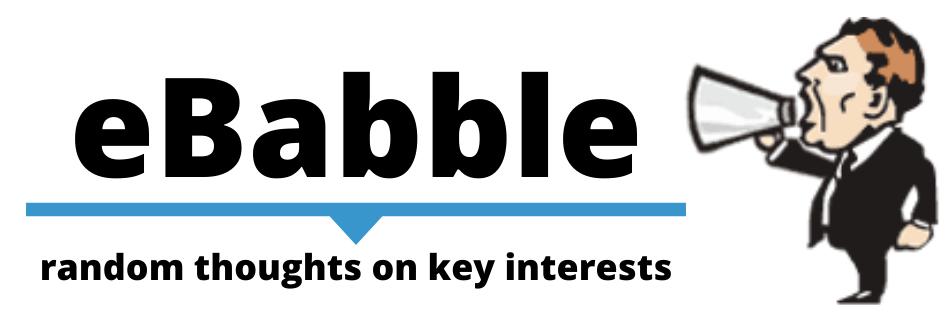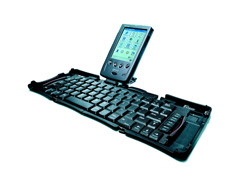Yes, that dreaded topic I’ve avoided for months has pressed itself upon me. Well, not really. I’ve been a Palm IIIxe owner but ignored the whole eBook thing since no outstanding readers were available. Yes, many web sites offer text files of classic books, but no special formatting or features accompany these. I just picked up a Jornada 547 Pocket PC and started looking for goodies and extras; games, utilities and other life-saving add-ons. Perusing the preloaded software showed a Microsoft Reader icon; I had read about and ignored it since my IBM z50 Windows CE device wasn’t supported. Now I had a reason to check out what the web had to offer up.
First and foremost I wanted free eBooks. I wanted to download reader software for my PC and handhelds to view my free eBooks. Like most internet users, free is the best choice for downloads. Of course, free books mean anything in the public domain and out of copyright; the “classics” as we like to call them.
My journey began like so many others with a trip to Google. Since my Pocket PC already had Microsoft Reader installed, I searched for that and found quite a bit, beginning with Microsoft’s Reader site. From there I downloaded and installed the new Microsoft Reader 2.0 for Windows PCs. It’s also available for Pocket PC 2002, but I wasn’t lucky enough to have that version. A little more perusing of the site revealed free eBooks offered on a rotating basis from Microsoft’s site; this required you to “activate” your version of Microsoft Reader. Activation ties up to four devices to a Microsoft Passport account and allows these devices to read purchased eBooks. This way you can’t download an eBook and offer it on Morpheus, where I’ve seen quite a bit of Pocket PC software. As well several other sites were listed such as Barnes & Noble and Amazon.
For some reason I couldn’t activate Microsoft Reader; the web page offered my Passport login, but every time I clicked it just brought the same thing up. Scratching my head proved useless so I began rummaging around the site for answers. For some reason Microsoft has two different Reader FAQs available; the latter told me to clear my temporary internet files and try again. I did and it worked.
Opening Microsoft Reader brought up a long narrow application ( book-shaped ) that stated: “Microsoft Reader with Clear Type”. This application was and still is fuzzy, most likely from the fact that Clear Type is only supported in Windows XP and Pocket PC. Windows 2000 seems to be trying to figure out what to do and softens the image, blurring the text and images. A directory called “My Library” is created under My Documents to house your eBooks; anything in that directory that’s supported shows up in Microsoft Reader. The main page offers up a simple interface that lets you sort or search, define basic settings and shop for new books. When an eBook has been opened these settings are available by clicking on the page’s title; overall an intuitive interface that offers just what’s needed to read books on the PC. You can also set bookmarks anywhere, annotate pages and search for what’s needed.
An interesting feature is text to speech, which is a free download or a component of Office XP. The problem was that it started reading everything very slowly in a mechanical voice, and the option to turn it off wasn’t as intuitive as the rest of the application. This feature will be a huge benefit for those that are visually impaired, as the font size can be set to maximum and the application can read the book out loud.
After activating my Pocket PC I copied some books over to it and tried reading using Microsoft Reader 1.0 for Pocket PC. The same basic functions, just smaller. My Jornada has a scroll wheel that allowed me to move page by page with ease. In both versions, I found the default text size easy to read and was able to run with the defaults. The file size on average was 700 kb, not too bad.
My next stop was the other format listed on the eBook websites, Adobe Acrobat eBook Reader. Another download and activation, this time quick and easy. Headed to the free sites and downloaded some eBooks in Adobe’s format, which was added automatically to the application and copied to its installation directory. Opening eBook Reader ( with Cool Type; how they love these names ) presented me with the same basic layout of its competitor, this time options on the right instead of the left. I couldn’t choose font size but could use a zoom feature. A dictionary was built-in, as opposed to Microsoft offering an eBook version of Encarta Dictionary for free. Pretty well an even match until I hit upon the double page feature; eBook Reader allows me to see two pages at once, filling my screen. A tough comparison but Adobe wins with the eBook Reader. Of course, since both are free, download them and grab as many free eBooks as you can handle.
After this I started looking for a Pocket PC version; unfortunately, Adobe only offers eBook Reader for Windows or Apple PCs. It is based on the Adobe Acrobat PDF format, so I downloaded Adobe Acrobat for Pocket PC. Microsoft uses a *.lit extension while Adobe used a *.pdf extension. The pain there is Acrobat Reader won’t open eBook Reader PDF files, but eBook Reader will open all PDF files. I tried this on my Pocket PC to get zilch. Regular PDF files opened fine but required indexing to be done during the transfer from PC to Pocket PC.
Now I had two formats of eBook reader on my PC and one on my Pocket PC. Perusing the web further I discovered quite a few eBooks in Acrobat Reader format, but the vast majority of freebies are in straight text. Excellent sites such as Project Gutenberg and Virginia.edu eBook List are the best places to look for any classic eBook. The beauty of text eBooks is the fact they can be read anywhere on practically any device. Their downfall is the lack of extras involved, as offered by the eBook readers above.
Now that the how what and where of eBooks have been covered, let’s look at when and why. The proliferation of PDAs ( portable or pocket digital assistants ) means we’ve got these devices at hand. Why not fill some downtime by copying a book and reading it on the bus, during break or even during that boring meeting? I’ve been trying this out, and find there are lots of pluses and minuses. Bottom line: it’s convenient and allows for a virtual library to be hauled around, but for now will not replace the comfort and convenience of a paperback.
Editors note: this review was migrated from the old eBabble.net site and the photos updated. Originally published November 16th, 2001.

